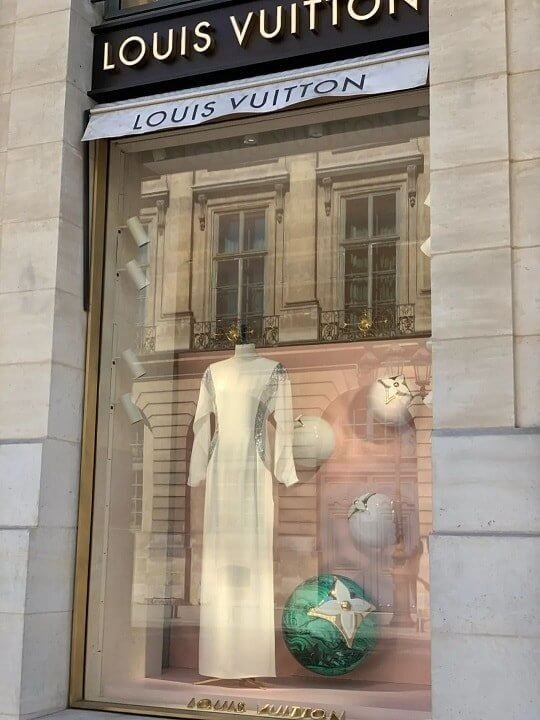Limestone belongs to natural limestone, which is formed by the impact and fusion of rock chips, shells, corals, and other marine life under the seabed hundreds of millions of years ago, and finally formed after long-term crust collision and extrusion, with gray, gray, gray, yellow, light red, brownish red and other colors.
Limestone also enjoys another noble name – “Stone of Life”.
Material category

1) Limestone can be roughly divided into white limestone, gray limestone, brown limestone, beige limestone, and yellow limestone according to color.

2) Limestone can be divided into limestone matte surface, limestone lychee surface, and limestone brushed surface according to the surface texture.

Material properties
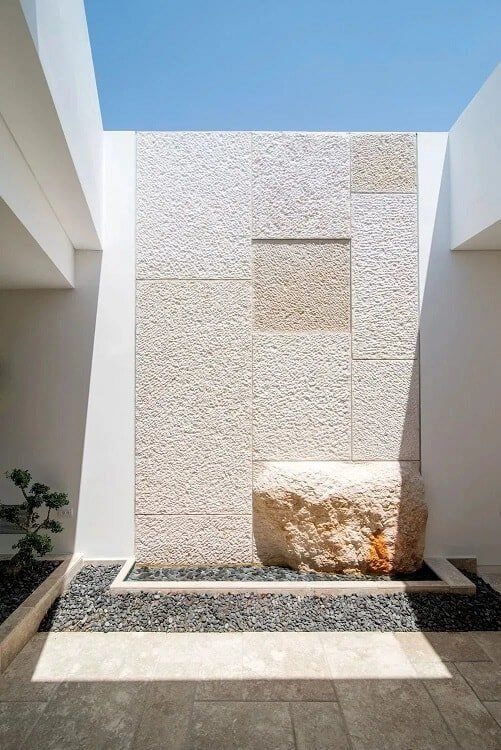
01Natural environmental protection, no radiation
Any piece of natural stone is a non-radiation, green, environmentally friendly building material, limestone is a material formed after hundreds of millions of years of precipitation and crystallization, and the performance is superior.
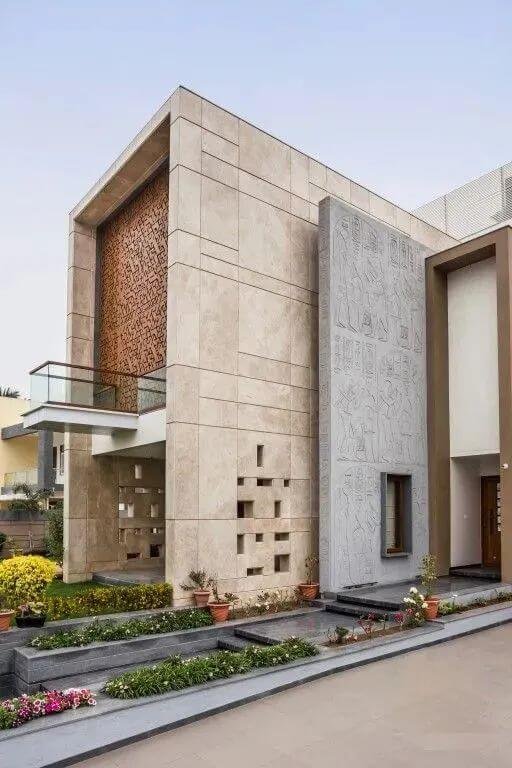
02 Moisture absorption, heat absorption
The weak water absorption performance of limestone effectively regulates indoor humidity, and its natural high heat storage performance can absorb severe external heat and then slowly release it, promoting a warm winter and cool summer environment.

03The texture color is beautiful
Limestone has a uniform texture, mild and low-key color, is very textured, and has the hardness of granite, which is often used in building facades and is an irreplaceable classic.
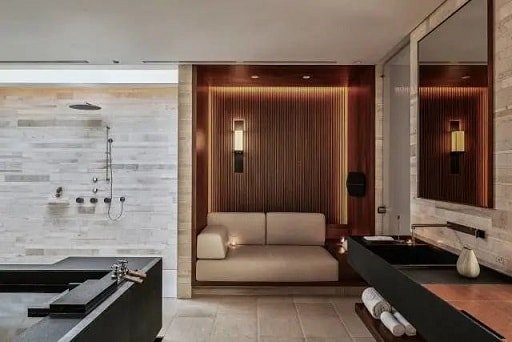
04 Inelastic, easy to crack
Although the hardness of limestone is very high, it is not elastic, if the panel cracks, it means that the whole stone has to be replaced, it is precisely because of its pure natural characteristics, so it is easy to crack, any external collision may increase the speed of its cracking.
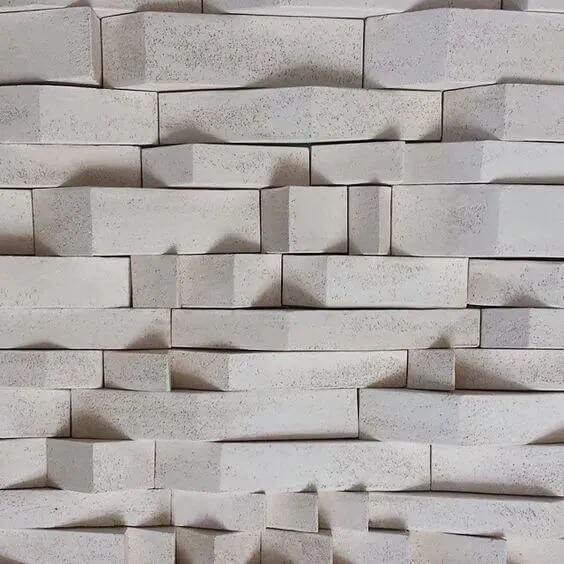
05 Area size is limited
Because limestone is taken naturally, the cause limits its area is generally not large, and the current construction process can not achieve two perfect splicings, so it is often limited by size in the application process.
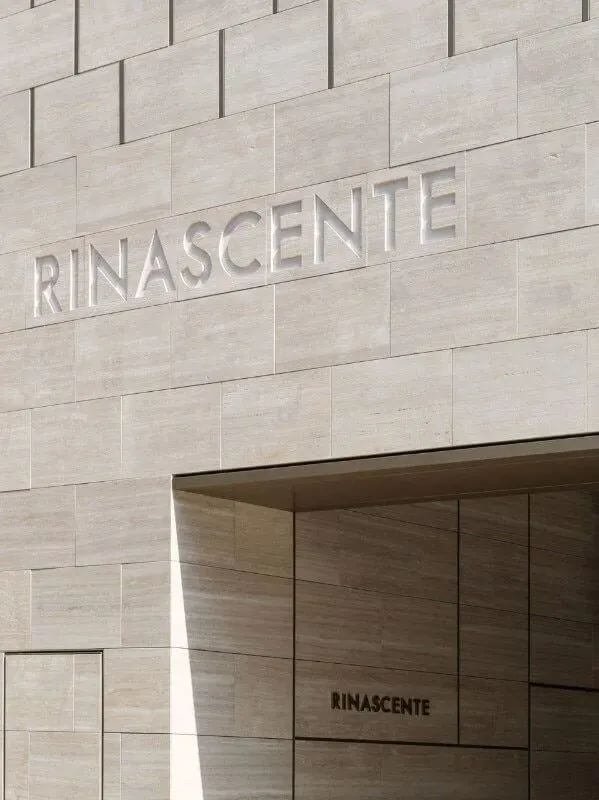
06Easy to fade and dirty
Limestone is composed of calcium carbonate, and there are fine pores on the surface, which can easily be adsorbed into the stone if the surface is contaminated with water stains.
And due to process reasons, the joints of the two stones cannot be perfectly spliced, and it is easy to hide dirt.

Application cases
#01, Xiamen Zhongnan Jiujin Tai

Limestone is mostly used in large-scale public decoration projects for exterior wall decoration, and the materials with a sense of history exude a more elegant and mysterious atmosphere under the baptism of nature.
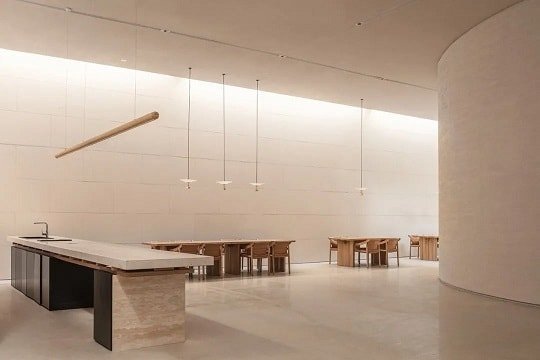
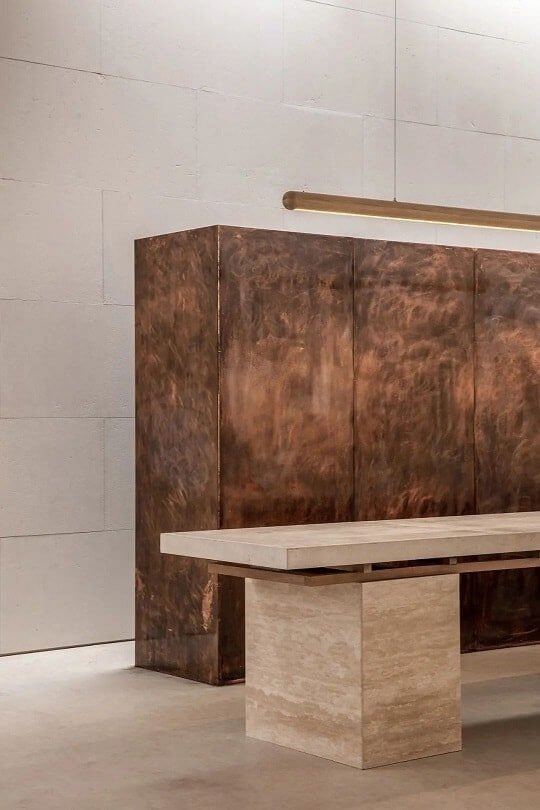
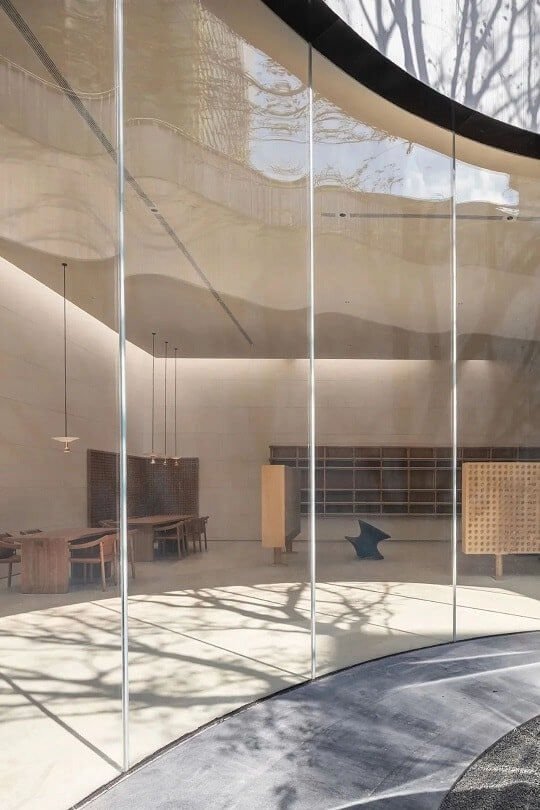
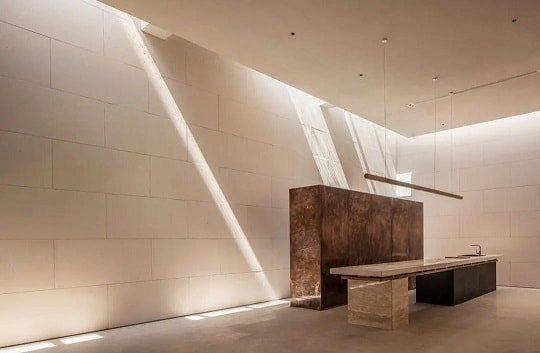
#02, Meixiu Art Museum

Designed by renowned architect I.M. Pei, the Mishu Museum is located deep in the Minshu Nature Reserve deep in the Shigaru Mountain south of Lake Biwa, east of Kyoto City, Japan.
The interior of the museum uses warm materials, extensive use of Burgundy limestone, and allows displays and works of art to be preserved in the best possible conditions.
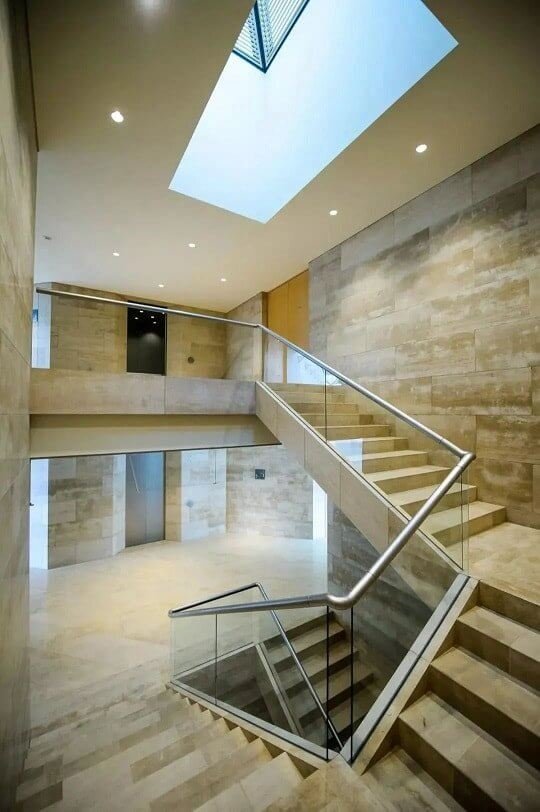
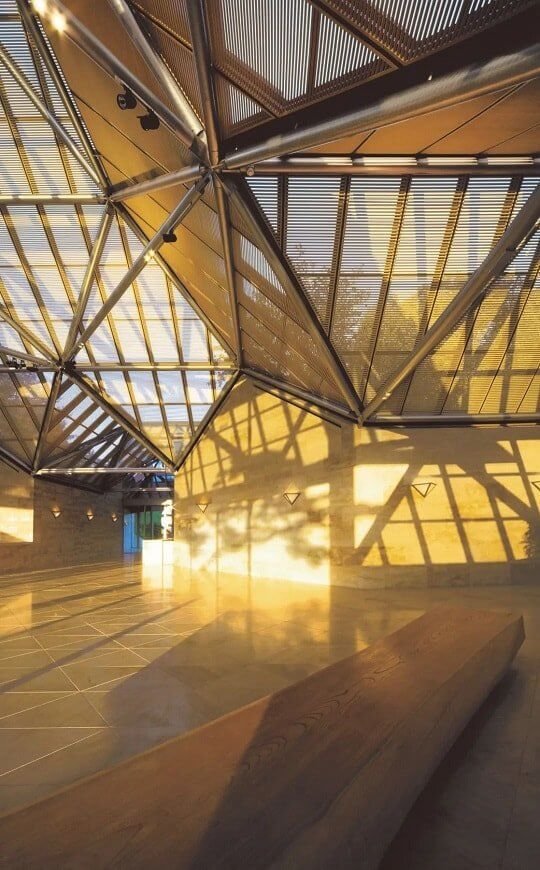
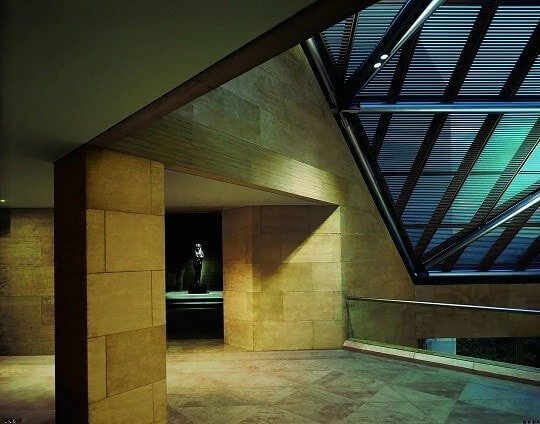

#03、Office building of the Chinese Embassy in the United States
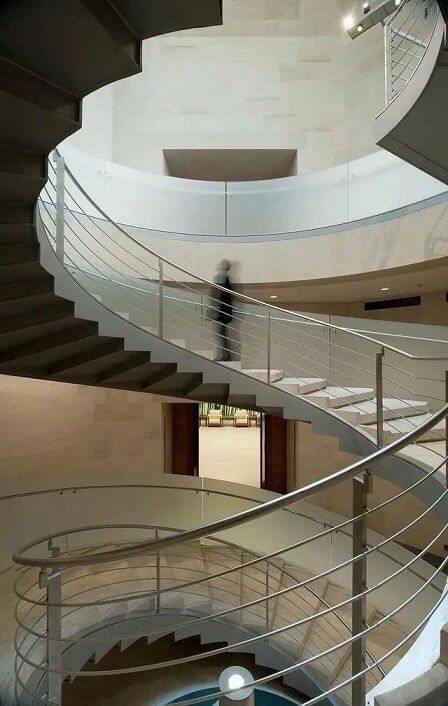
The office building of the Chinese Embassy in the United States is located in the northwest district of Washington, the capital of the United States, and the embassy is designed by the world-famous Chinese architect I.M. Pei.
The building makes extensive use of limestone, combines the charm and essence of Chinese architecture, and carries out necessary evolution and abstraction on the basis of tradition, reflecting the consistent modern style of Pei’s architectural design.
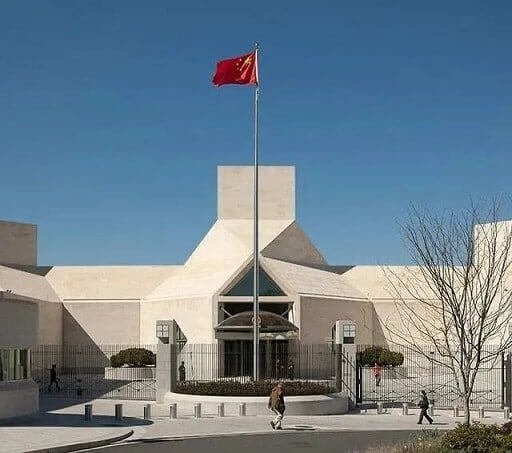
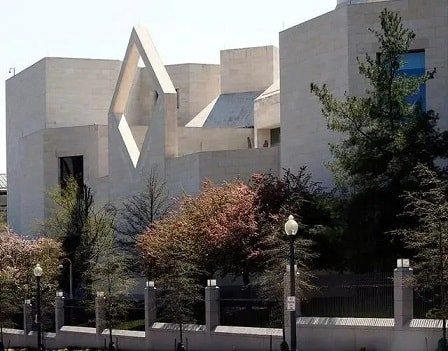
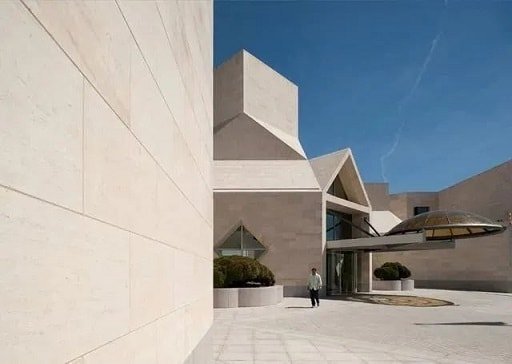
The Louis Vuitton flagship store in Place Vendome is housed in two special buildings with a classic French limestone façade.
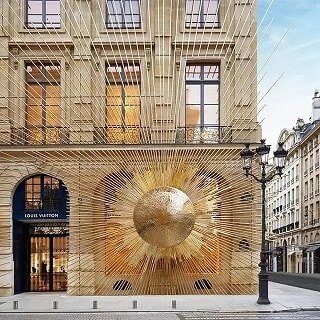
Through the use of large pieces of glass, bright stone, and wall craftsmanship, combined with beautiful stone parquet flooring, each floor can subtly present its own characteristics.


